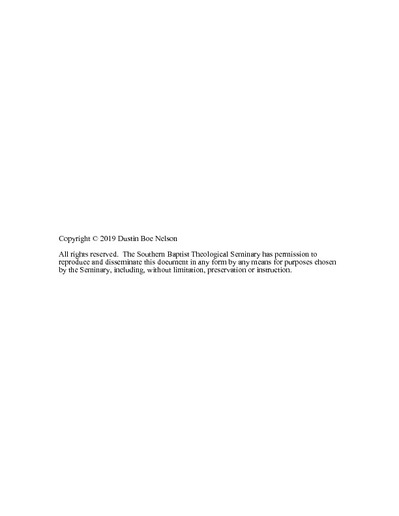Pastoral Preaching: A Reformation and Redefinition of a Pastor’s Call to Preach for the Purpose of Sanctification
Abstract
Chapter 1 introduces the dissertation’s thesis, highlights its methodology and establishes its goals. The dissertation argues that pastoral preaching is any preaching in the setting of a local congregation where the pastor communicates the meaning of the text and properly applies it to the human experience of the listeners, thus participating in God’s call for the sanctification of His people. Chapter 2 describes approaches to pastoral preaching that have emerged since Harry Emerson Fosdick’s controversial methods. It compares these approaches to the definition of pastoral preaching and discusses why they are inadequate forms of pastoral preaching. Chapter 3 argues for the use of application in pastoral preaching through an exploration of the shepherd metaphor in both the Old and New Testaments. It focuses on four passages that describe God’s shepherding work and how it has been passed down to pastors. Chapter 4 describes in detail the shepherding work to which God has commissioned pastors: the work of progressive sanctification. It argues that this work is accomplished through the Word of God by applying the Word to the whole person. Chapter 5 seeks to illuminate the biblical counseling movement as an aid to the pastor in creating application that encourages sanctification. It argues that biblical counseling and pastoral preaching are both ministries of the Word and helpful to one another. Chapter 6 proposes a biblical counseling-inspired framework for sermon application. It describes the framework and gives examples of its use. Chapter 7 concludes the dissertation by offering a summary of arguments and considering areas for future research related to the subject.

